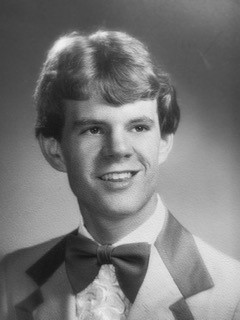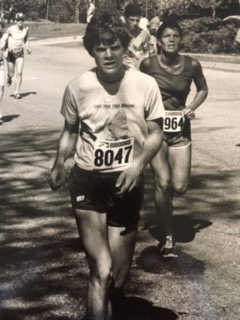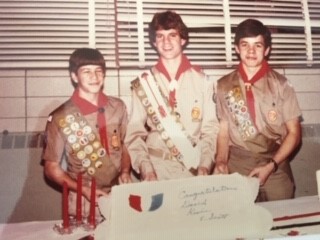Mentor in the Dean’s Office
One of his mentors during that time was Theodore A. Tarkow, now professor emeritus of classic studies and former associate dean of Arts and Science (1982-2018).
Tarkow recalls David’s father, William Whitney Hicks (who died in 2014), was former chair of MU’s economics department. “(Whitney) had instilled in David the possibility of a career as a university professor,” Tarkow says. “His mother had shaped in him the confidence to succeed in whatever direction his degree might take him.”
Remembering David’s passion for social justice, Tarkow recalls his resilience despite his serious medical condition. “David persisted, both in class and in MU activities that reflected his interests in the social and political topics of the day.
“David’s own persistence in pursuing his goals was enhanced by the creative support shown him by faculty and administrators in the department and college.
“It’s a source of sadness and pride that thanks to a scholarship in his name, which his family has now established for history majors, that the department will be able to remember for years to come a young man whose abilities and challenges helped bring out the good in many other people.”
Catherine Rymph, current chair of the history department, says she’s heard about David’s struggles and achievements. “He was ill and so struggled to complete credits to graduate,” she says. “That’s why the scholarship is not really based so much on academic record, as so many of our other scholarships are. I think it’s important his name be attached to an award that outlines who he was, and that was someone who cared about others and making a difference. Applicants could have a 4.0 GPA, but that wouldn’t be the main criteria for (the award).
“The history department has a lot of undergrad scholarships based on many things, such as financial need, area of study, plans to attend grad school…. This gift is really different than others and we are really happy to have it and have students benefit.
“It means a lot to me,” Rymph says, “because it’s an opportunity to recognize students in the full picture of who they are.”
“I thought the scholarship was an appropriate way to honor David,” Marjory adds. “He was a good student. He would be pleased to have a scholarship in his name to support others who want an education.”
The scholarship will become available Spring 2022. The history department offers seventeen scholarships total, including the Allen Cook White Fellowship, Frank & Louise Stephens Scholarship, George Dalack Memorial Scholarship Fund, Walter V Scholes Scholarship, David Wakefield Memorial Scholarship, and many more.


